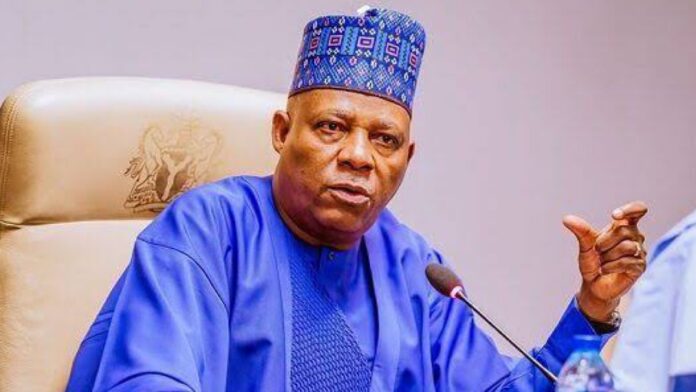Vice President Kashim Shettima says the removal of fuel subsidy by the President Bola Tinubu-led government was part of a broader long-term economic policy.
“By removing fuel subsidies, unification of exchange rates, and debt management strategies are all part of a broader effort to restore economic balance and ensure long-term stability,” Mr Shettima said.
Mr Shettima was speaking in Abuja at the 30th Nigerian Economic Summit (NES30), with the theme: ‘Collaborative Action for Growth, Competitiveness and Stability’.
The vice president said the current government had embarked on bold and courageous reforms designed to create an environment for sustainable economic growth and shared prosperity.
“Our focus is on sectors that can offer inclusive and sustainable growth, such as agriculture, manufacturing, and the digital economy,” he said, adding that the digital economy held a very promising prospect for revitalising the economy.
Mr Shettima said that the administration’s objective was to build “a resilient economy that can withstand shocks,” by ensuring an inclusive economy where small and medium-sized enterprises can thrive alongside large corporations.
“We have initiated various programmes, such as the MSMEs hubs and single-digit loans for manufacturers designed to provide entrepreneurs with the support they need to succeed.
“We have also introduced a credit corporation to offer our workers consumer loans with single-digit interest.
“These initiatives collectively will grow the economy and ensure it remains competitive in Africa and globally,” the vice president said.
Mr Shettima said that beyond fiscal reforms, the government was also strengthening the social safety nets to protect vulnerable Nigerians.
“We are already expanding programmes like the National Social Investment Programme, National Poverty Reduction and Growth Strategy, and other livelihood support initiatives crucial to millions of Nigerians.
“However, we must do more to institutionalise these safety nets and make them a permanent feature of our economic architecture,” he said.
The vice president called for collaboration between key stakeholders, including the public and private sectors, civil society and international development partners.
(NAN)



